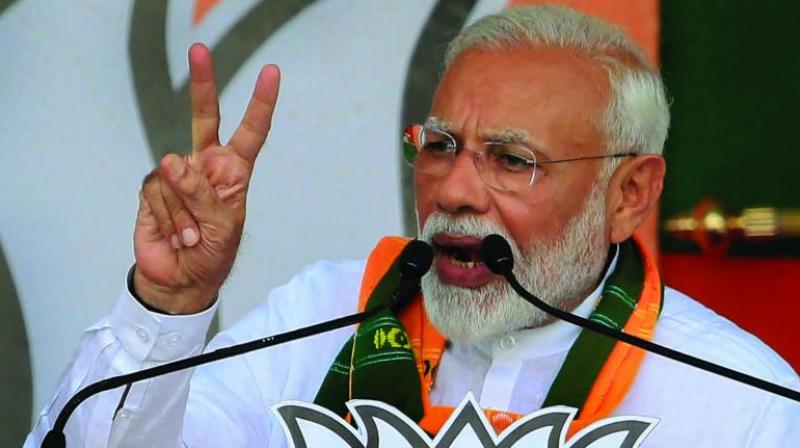It’s time to reclaim the Ocean from terrorists

In his first foreign foray since he was re-elected for a second term, Prime Minister Narendra Modi has talked up a familiar theme with his “Neighbourhood First” policy. In flagging his zero tolerance towards terror on his visit to the Maldives, he is drawing a red line, sending a clear message not just to Pakistan, but to China too, that the Indian Ocean remains Delhi's hunting ground. And that this Modi government is not going to allow Chinese influence to grow in its backyard, or let Pakistan's terror machine hold India to ransom.
PM Modi, who is in Sri Lanka on the second leg of his two nation tour that began in Male on Saturday, may have begun a long overdue rebuilding of ties with two key neighbours, both of whom remain critical to India’s strategic calculus and whom it had allowed to slip out of its ambit. In the interim, the seeds of an anti-Indian Islamic fundamentalism have been sown and the malaise has taken root in these island nations, fanned, many say, by the Islamic State, looking for new venues in which to operate, as its own West Asian footprint shrinks.
Whether that theory holds good or not, the Easter Sunday bombings by nine suicide bombers in Colombo on April 21 were a sharp wake-up call for the Modi government as much as the Pulwama attack by the Jaish-e-Mohammed that led to the death of CRPF personnel. The depth and sophistication that marked both suicide attacks will no doubt have been the primary focus of talks between a better informed Mr Modi and the increasingly shaky Maithripala Sirisena government in Sri Lanka, which faces the wrath of its countrymen for being asleep on the watch, despite multiple warnings by Indian intelligence.
The Modi government’s first stint was marked by naivete over handling its immediate neighbourhood, particularly Pakistan, the fount of terror. Although one must concede as commendable the manner in which it ceded no quarter on the Doklam standoff to China, with Pakistan, with the military's pick, Mr Imran Khan, elected to the prime ministership, the ideal scenario may be different. This may well be a “naya Pakistan” in more ways than envisaged, one that India could explore doing business with.
Mr Modi’s foreign policy team in his second stint is a far more well-crafted one with the two men at the helm being Mr Ajit Doval and Mr S. Jaishankar who have cut their teeth on handling two of India’s most potent adversaries, Beijing and Islamabad.
Amid the Saarc versus Bimstec debate that the duo have set in motion, and questions on whether it is wise to blackball Pakistan, few policy wonks will cavil at the need to reel Male and Colombo back into India’s sphere of influence. Having said that, we ignore Pakistan at our peril. It’s time to craft a policy that goes beyond the “no talks till terror ends” paradigm with Pakistan by ensuring the terror groups it spawns have no room to grow in the smaller Indian Ocean nations.

